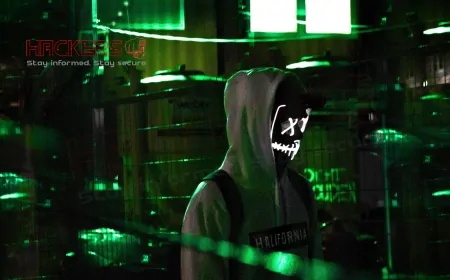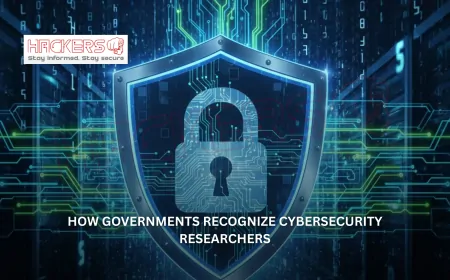How Colleges in Pune Are Incorporating Cloud Security, IoT Security into their Curricula
Picture this: your smart fridge suddenly starts sending spam emails, or a hacker accesses your company's data stored in the cloud. These scenarios might sound like science fiction, but they are real risks in our connected world. As technology advances, so do the threats. Cloud security involves protecting data and applications hosted on remote servers, while IoT security focuses on safeguarding devices like smart thermostats or wearables that connect to the internet. In Pune, a city buzzing with IT innovation, colleges are stepping up to prepare students for these challenges. Over the past few years, educational institutions here have updated their programs to include these topics, blending theory with hands-on practice. This blog explores how Pune's colleges are weaving cloud and IoT security into their curricula, making sure graduates are ready to defend against digital dangers. If you are new to this field, do not worry: we will explain everything in simple terms as we go along.

Table of Contents
- Overview of Cybersecurity Education in Pune
- The Importance of Cloud and IoT Security
- Key Colleges Leading the Way
- How Curricula Are Integrating These Topics
- Hands-On Learning and Labs
- Challenges in Incorporation
- Future Trends and Predictions
- Conclusion
- Frequently Asked Questions
Overview of Cybersecurity Education in Pune
Pune has earned its reputation as an education and tech hub, with institutions adapting quickly to industry needs. Cybersecurity programs have grown significantly, especially since the National Education Policy 2020 encouraged flexible, skill-based learning. Many colleges now offer degrees like B.Tech in Cyber Security or B.Sc. in Cyber Security, often under Savitribai Phule Pune University guidelines. These programs start with basics, like understanding networks, which are connections between computers, and build up to advanced areas. Cloud and IoT security are increasingly featured, reflecting real-world demands. For instance, with more businesses using cloud services like Amazon Web Services, and IoT devices in homes and industries, students learn to spot vulnerabilities, which are weak points that hackers can exploit. This shift ensures graduates can handle modern threats, from data breaches to device hijacking. Recent updates in 2024 and 2025 have added more practical modules, making Pune a top choice for aspiring security experts.
The growth is driven by local IT parks and companies seeking skilled talent. Colleges collaborate with industry for internships, helping students apply knowledge. Overall, Pune's approach balances theory and practice, preparing beginners for a field where staying updated is key.
The Importance of Cloud and IoT Security
In a world where data lives in the cloud and devices talk to each other via IoT, security is crucial. Cloud security protects information stored online, preventing unauthorized access. Think of it as locking your house, but for digital files. IoT security, on the other hand, secures everyday items like fitness trackers or factory sensors. Without proper safeguards, these can become entry points for attacks. Pune colleges recognize this, incorporating these topics to address rising cyber threats. Reports show India's cybersecurity market growing rapidly, with a need for experts in these areas. By teaching these, programs help students understand risks like data leaks or botnets, which are networks of hijacked devices. This education not only boosts employability but also contributes to safer digital ecosystems.
Key Colleges Leading the Way
Several Pune colleges stand out for their cybersecurity programs. MIT World Peace University offers a B.Tech in CSE with Cyber Security and Forensics, including dedicated cloud courses. D.Y. Patil International University has B.Tech options focusing on IoT and cloud electives. Symbiosis Skills and Professional University provides a B.Tech in CSIT Cyber Security with specific IoT and cloud modules. Indira College of Commerce and Science's B.Sc. Cyber Security includes cloud hands-on training. Bharati Vidyapeeth emphasizes IoT in its B.Sc. Hons. program. These institutions update curricula regularly, often aligning with NEP for flexibility.
To compare, here is a table of key programs and their focus areas.
| College | Program | Cloud Security Integration | IoT Security Integration |
|---|---|---|---|
| MIT-WPU | B.Tech CSE (Cyber Security and Forensics) | Dedicated course in Semester VII | Embedded Systems and IoT Lab in Semester IV |
| D.Y. Patil | B.Tech CSE | Elective option | Core course in Semester V |
| Symbiosis SSPU | B.Tech CSIT (Cyber Security) | Course in Semester IV, elective in VI | Elective in Semester VI |
| Indira College | B.Sc. Cyber Security | Hands-on in Semester V, course in VI | Integrated in outcomes and labs |
| Bharati Vidyapeeth | B.Sc. Hons. Cyber Security | Mentioned in broader curriculum | Applied in emerging tech outcomes |
How Curricula Are Integrating These Topics
Integration happens through core courses, electives, and projects. At MIT-WPU, Semester VII's Cloud Infrastructure and Security covers shared responsibility models, where providers and users split security duties. IoT is introduced earlier with labs on embedded systems. D.Y. Patil makes IoT a core subject in Semester V, teaching protocols and architecture. Cloud is an elective, allowing specialization. Symbiosis includes Cloud and Infrastructure Security in Semester IV, with IoT as an elective later. Indira's program has cloud in advanced semesters, with practicals on concepts like virtualization. Bharati Vidyapeeth applies IoT concepts in outcomes, focusing on emerging tech. Under SPPU, second-year students study Cloud Cyber Security and analyze IoT vulnerabilities. This progressive approach starts with foundations and moves to specialized topics.
Hands-On Learning and Labs
Theory alone is not enough: Pune colleges emphasize labs and projects. Students use tools like Wireshark for network monitoring or simulate IoT attacks in secure environments. At Symbiosis, internships expose learners to real cloud setups. Indira's labs include electronics for IoT device handling. MIT-WPU has dedicated labs for cloud security, teaching configuration and threat response. These activities help beginners build confidence, turning abstract ideas into practical skills.
Challenges in Incorporation
Updating curricula is not easy. Rapid tech changes mean constant revisions, and resources like advanced software can be costly. Faculty training is another hurdle, as teachers need to stay ahead. Despite this, colleges use partnerships and grants to overcome issues. For example, aligning with NEP helps add flexibility, but implementation varies.
Future Trends and Predictions
Looking ahead, AI integration in security will grow, with Pune programs likely adding modules on machine learning for threat detection. Quantum computing, which could break current encryption, may become a focus. More hybrid learning and global certifications will emerge, keeping Pune at the forefront by 2030.
Conclusion
Pune's colleges are effectively incorporating cloud and IoT security, through structured courses, labs, and industry ties. From MIT-WPU's dedicated modules to Symbiosis' electives, these programs equip students for real threats. As digital risks evolve, this education is vital. If interested, explore these options to start your journey in cybersecurity.
Frequently Asked Questions
What is cloud security?
It protects data and apps in remote servers from unauthorized access.
What is IoT security?
It safeguards connected devices like smart home gadgets from threats.
Why include these in curricula?
To prepare students for rising cyber risks in digital tech.
Which Pune college offers strong cloud security courses?
MIT-WPU has a dedicated Semester VII course.
How is IoT taught at D.Y. Patil?
As a core subject in Semester V, covering protocols.
Does Symbiosis have IoT electives?
Yes, in Semester VI.
What hands-on for cloud at Indira?
Value-added skill course in Semester V.
Is Bharati Vidyapeeth focused on IoT?
Yes, applied in program outcomes for emerging tech.
Are programs under SPPU?
Many are, with cloud and IoT in second year.
What entry requirements?
Typically 12th science with math, minimum marks.
Duration of programs?
3-4 years for B.Sc. or B.Tech.
Do they include certifications?
Yes, like CEH or AWS in some.
What careers after?
Security analyst, forensics expert, consultant.
How updated are curricula?
Revised yearly, aligned with NEP 2020.
Challenges for colleges?
Keeping pace with tech, resource costs.
Future additions?
AI for security, quantum threats.
Beginner-friendly?
Yes, start with basics.
Internships available?
Most programs include them.
Why Pune for this?
IT hub with industry links.
Where to find syllabi?
College websites or SPPU portal.
What's Your Reaction?










































































